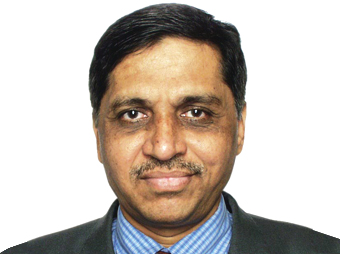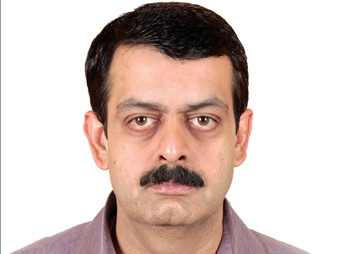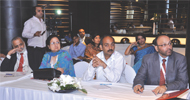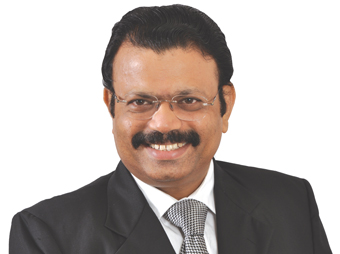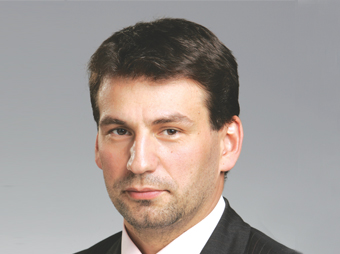
One of the key opportunities that we see in India is helping healthcare providers design,build and operate a modern ICTinfrastructure that effectively supports the important work of care givers, says Neil Jordan, General Manager-Worldwide Health, Microsoft.
Give us a brief overview of Microsofts footprint in Indian health IT space.

 We are very involved in the Indian healthcare market and are working closely with various stakeholders within the industry, from hospitals to government agencies to non-profit organisations to deliver better healthcare through technology.Some of Microsofts clients in the healthcare industry in India include Razi Healthcare, Kamineni Hospital, Akhil systems, Renaccess and gloStream. Earlier this year, the Indraprastha Apollo Hospital, New Delhi, implemented Microsoft share Point Server 2010 to eliminate manual tasks and automate business processes from a centralised location. It is recognised as a superior healthcare provider at the forefront of medical technology and expertise. The hospital needed modern business management software to ensure greater transparency and control over its largely manual processes. with no integrated system, employees lacked holistic insight into important data that would have helped make quicker and better decisions for patient treatment. As a result of automating procurement with SharePoint, the hospital now saves considerable time, streamlines processes, and has reduced costs by 25 percent. Additionally, the hospital expects to improve employees access to information, reduce errors, improve efficiency and above all, boost collaboration.
We are very involved in the Indian healthcare market and are working closely with various stakeholders within the industry, from hospitals to government agencies to non-profit organisations to deliver better healthcare through technology.Some of Microsofts clients in the healthcare industry in India include Razi Healthcare, Kamineni Hospital, Akhil systems, Renaccess and gloStream. Earlier this year, the Indraprastha Apollo Hospital, New Delhi, implemented Microsoft share Point Server 2010 to eliminate manual tasks and automate business processes from a centralised location. It is recognised as a superior healthcare provider at the forefront of medical technology and expertise. The hospital needed modern business management software to ensure greater transparency and control over its largely manual processes. with no integrated system, employees lacked holistic insight into important data that would have helped make quicker and better decisions for patient treatment. As a result of automating procurement with SharePoint, the hospital now saves considerable time, streamlines processes, and has reduced costs by 25 percent. Additionally, the hospital expects to improve employees access to information, reduce errors, improve efficiency and above all, boost collaboration.
How do you see the advancement in the field of health IT over the last decade?
Technology has revolutionised healthcare over the past decade, and is growing exponentially.Think back ten years ago, before electronic medical records, personal devices, and video conferencing. Now, we can train and collaborate with healthcare providers all over the world and transfer information, medical records, and lessons once trapped inside heavy and expensive books without leaving our offices. Even more, we have access to a world of information with the devices we store in our pockets. The storage and access to health records is one area that has benefitted from technology. Microsoft Health- Vault is a personal health application platform that enables individuals to store and manage their health information in a personal, online account, while providing a platform for healthcare providers, professional organisations, insurance companies and others to easily provide applications and services that will help patients manage a chronic condition or improve their well-being. HealthVault is a tool that enables people to take more control and interest of their health, which is vital to arresting the exploding cost of healthcare that nations are grappling with today.

What is the portfolio of health IT solutions that Microsoft is currently offering in India?
Health organisations in India are using solutions based on Microsoft technologies for electronic medical records, imaging systems, clinical and business intelligence, Telehealth and Caregiver Collaboration as well as to connect patients to their personal health records and help them take an active interest in their wellbeing. We work closely with our partners to extend the benefits of healthcare IT solutions to as many people as possible, including those in rural areas without access to specialist healthcare. For example, Renaccess Healthcare is founded by two IIT Bombay and Indian School of Business graduates in 2010 with the aim of making dialysis treatment more affordable and accessible to at least 50 percent of kidney failure patients in India. To contribute back to society, the two founders, Saurav Panda and Gaurav Porwal, pledged to penetrate the expensive dialysis treatment in metropolitan areas.and take it to the masses in tier one and tier two cities, with a cost effective and no-frills approach. Operating under the brand name Sparsh Nephrocare, they collaborated with Affordable Business Solutions (ABS) to implement a Hosted Microsoft Dynamics AX 2009 solution. With a cloud computing model, all the assets at Sparsh were integrated, optimised and holistically managed to respond with agility and speed. The solution guarantees zero downtime, helping the company save up to Rs. 50,000 per annum, improving patient care and ultimately lowering the cost of care for patients. Increasingly advanced communication and collaboration technologies such as Office 2010, Office 365, and Lync are helping to ensure the patient remains the focal point in healthcare.
What is market opportunity for health IT solutions in India?
India is one of the worlds largest healthcare markets and there is a wealth of opportunity for the health IT industry to grow. We see the provision of infrastructure software and hardware as an important way to improve the way clinicians
and nurses can work and collaborate together. We also see huge opportunities for simplifying, making sign on and sign off easier, enabling people to take their mail and appointments with them wherever they go on their phone or PC, helping IT manage and deploy systems faster and so much more. In the end it is about making ICT a quality technology experience that enhances and amplifies the caregivers ability rather than getting in the way.
India is a key market for Microsoft Health. In fast developing economies like India, cloud computing can give healthcare organisations the opportunity to improve the quality and access of care, and reduce costs. Microsofts cloud and cloud-enabled hybrid solutions help healthcare organisations focus on patient care, while cost-effectively consuming IT services.
Do you think ICT can act as an effective interface, where there are no hospitals or healthcare centres?
Absolutely, ICT is an essential tool in bringing better healthcare to areas beyond the geographical reach of hospitals or healthcare centres. For example, in 2008, we worked with local partners and medical facilities to pilot a tele health project in the Barielly and Madhubani districts, where it was common for villagers to travel 10 to 12 hours or more to see a doctor without knowing if they can even find one willing to care for them. With the assistance of a medical facilitator and by means of a computer and dial-up Internet connection, villagers were able to discuss their health concerns with a medical professional based at an urban centre. Vital signs, photos, medical records and other information can also be shared often be addressed almost immediately, while patients needing more care can be referredfor an appointment in town, but with greater assurance that when they make the long trip to get there, they willsee the most appropriate specialist for their particular condition.
Access to ICT is also extremely important when faced with a disaster response scenario. For example, the day after the Japan tsunami disaster struck in 2011, Microsoft began to help build and migrate websites which used cloud services to relay emergency information. We also worked with our hardware and NGO partners to provide computer and Internet access to disaster-struck regions, allowing volunteers to collaborate and coordinate aid efforts in places where even cellular networks were disrupted.
What do you predict will happen within Health IT space in the next 5-10 years? What are your future plans?
We foresee that the industry will start taking all the information thats being digitised and turn it into useful information and knowledge that will enable people to use the information at a personal level. By making information easy to access and use, we multiply its value by empowering people to be stewards of their own health data and wellness programs. We also see Natural User Interface (NUI) technologies becoming increasingly the key for widespread adoption of healthcare ICT solutions. We will continue to work closely with health-related constituents across the globe “ from governments to industry to individuals “ to help them move away from todays fragmented delivery system to a Connected network that is flexible, interoperable, scalable and secure.
Be a part of Elets Collaborative Initiatives. Join Us for Upcoming Events and explore business opportunities. Like us on Facebook , connect with us on LinkedIn and follow us on Twitter , Instagram.



